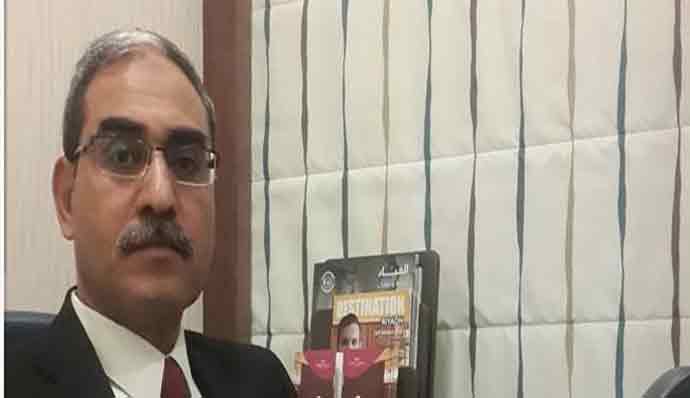Adel Zayd: Financial Manager of “Saudi Al-Babtain” in Egypt
We have investments worth EGP 250m in Egypt
We do not deal with the black market as exports provide us with foreign currencies
Dr. Adel Zayd, financial manager of Al-Babtain Power & Telecom in Egypt, says that the company is taking procedures to increase its financial capital, pointing out that the company’s investments worth EGP 250 million. He added that the Egyptian banks could not provide the company with foreign currencies which made it harder for the company to get raw materials required for manufacturing. However, the company did not seek the black market to provide it with foreign currencies; the company’s exports were the main source of foreign currencies.
What is Al-Babtain main area of expertise?
Al-Babtain is a Saudi company that operates in Egypt in Power and Telecommunication domains and has three production lines in the local market: A production line for high pressure communication towers, production line for poles operating with high masts and monopoles and another for galvanizing.
Did your company win any tenders over the last period?
The company has won three tenders: The ministry of electricity’s tender to manufacture transmission towers worth EGP 57 million, a tender of Samalot line worth EGP 100 million which is being constructed and a tender for El-Sewedy stations project worth EGP 150 million.
What are the governmental bodies that the company deals with?
The company’s main client is the Egyptian Electricity Transmission Co (EETC). We supply the private and public sectors with poles such as El-Mokawloon El-Arab and Eleject.
The company seizes 75 per cent of the EETC supply and in case of any governmental expansions; the company will increase its investments.
How much is the company’s investment?
The company’s investments in Egypt are estimated at EGP 250 million and its local market and exports’ sales worth EGP 250 million, with 80 per cent for exports to Algeria, Ethiopia, Russia and Morocco.
Does the company intend to increase its capital in Egypt?
The company intends to increase its capital and we are taking the related governmental procedures to do so.
Do you have new investments in Egypt?
The company is to invest in a new sector which is manufacturing portable air conditions to meet the market needs, especially Upper Egypt market. A factory for this purpose is being built in Egypt to save up the shipping costs. As for now we manufacture the air conditions in Saudi Arabia. The portable air condition operates through water and rice straw, instead of Freon, which saves energy.
Did you expand your factories?
We expanded the company’s factory in 6th of October city as 10k meters were added up to the factory to become 260k meters. The factory of transmission towers have been expanded as well.
How did the dollar crisis influence the company?
In 2014, the company had foreign currency surplus as exports represented 80 per cent of sales and we used to give the currency difference to the Egyptian banks. However, everything has changed now, the company’s production reached 80 per cent in the local market and only 20 per cent in the global market. In addition, we import all the production materials as we cannot obtain it from Egypt. Therefore, we needed foreign currencies, but the Egyptian banks do not facilitate such procedures even though our projects are of national demands such as electricity and power.
Although, we gave banks $9 million in 2014, banks refuse to provide us with dollars even though we need them to complete our projects. Therefore, we suffer a dollar crisis and the government should provide foreign currencies for the companies that implement national projects.
Will Saudi investors provide the company with foreign currencies to escape the crisis?
Saudi investors may provide the company with foreign currencies if a huge project is established and will provide huge revenues. However, Arab and foreign investors are trying to avoid providing dollars because they do not know if they can take them back when transferring their profits abroad.
Is the black market among your options to obtain dollars?
We obtain dollars through our exports, but they are still insufficient. Unfortunately, we could be forced to deal with the black market when it is absolutely necessary.
Unfortunately, most industries that depend on imported raw materials are suffering a dollar crisis. We have not dealt with the black until now due to the risks in doing so.


